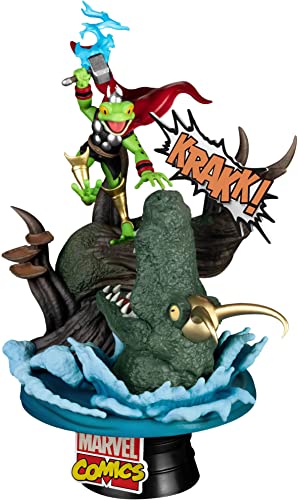The point is, we humans decided to stop fighting each other and face a otherworldy threat. Squid, Dr. Manhatten, whatever it may be. The idea is still the same.
It's not actually the same at all. Manhattan isn't an external threat. He's an authorized extension of US military policy and more to the point, people have been preaching hate against the costumed heroes for decades in the
Watchmen universe. So using Manhattan as the climactic pivot serves no purpose re: bringing the world together.
And V for Vendetta is amazing, and makes some fantastic well thought out points.
And the point of V in the film is directly at odds with the point of V in the book. That's my worry with changing the climax of
Watchmen. We might get a good film that bears an uncanny resemblance to key parts of the book while missing the point altogether. I hope I'm wrong. But then we already have a buff Dan and a group called The Watchmen and the driving engine of the novel's plot admittedly removed by the director. So we'll see.
It's way too early to proclaim with certainty that the film has either succeeded or failed as an adaptation of the book (even though so much of it looks and feels so right at this point).
I agree. But I do think it's fun to discuss the bits and pieces.
The comparison to V For Vendetta is a bit silly and premature, because it's based almost entirely on speculation and supposition.
Not really. It's based on an admission by the director and reading drafts of the script (the latter is something I've avoided incidentally). It may well be that Snyder found a way to incorporate his alternate ending while not undermining the entire point of Veidt's scheme and thus the book itself. But on the face of it, the climax doesn't appear to make any sense. That's worth talking about on a provisional basis. And the
V for Vendetta comparison is especially apt because it was an adaptation that got so much right, including entire scenes verbatim, and yet still somehow wound up missing the entire point of the V character because the filmmakers decided they knew better than Alan Moore, and labored under the illusion that perfectly recreated page 42 was somehow more important than ensuring the theme of the book remained intact. Of course we don't know if this will happen with
Watchmen, but I don't see the harm in chatting about things.
And a big reason why The Comedian and Rorschach are so popular is because their characters are the most complex and deconstructive of the lot. In other words, they are the farthest from the one-dimensional (and utterly unrealistic) heroes of most comic books.
I can see where you're coming from, but I actually think they're the most simplistic characters in the book. Dan and Laurie are the most complex deconstructions of the lot - especially Dan, with whom Moore eviscerates the typical hero with surgical precision.
It's a hallmark of some of the greatest villains of all time that they are able to jusity their actions "for the greater good." It is precisely what Veidt achieves. Does this make him a villain? Well, considering the collateral damage his plan reaps, the answer is simple and straighforward from a deontological standpoint, not to mention the volume.
This is what makes it such a fascinating plan. Surely our current president is a villain because of the collateral damage his plan reaped? Suddenly things look a lot different, don't they? I submit the answer is not so simple and straightforward at all, and that in fact by having Dan and Laurie forced into complicity by keeping the secret he is destroying the childish notion that there can even
be heroes and villains altogether. In many ways there was no need to ever write another superhero comic after
Watchmen. I think Moore sees the heroes as villains, which is why his Batman and Captain America analogs are monsters and why the only decent people in the book are the people who sit on the sidelines. This is what the film needs to capture for me, far more than the details of Rorshach being captured or what the owl ship looks like.
(I'm not arguing with you by the way - just thinking aloud.)

















